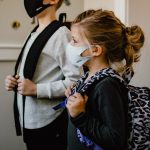By Aiden Haines
Photo by Annie Spratt on Unsplash
Intimate Partner Violence or IPV is defined by the Center for Disease Control and prevention as describes physical violence, sexual violence, stalking, or psychological harm by a current or former partner or spouse. This type of violence can occur among heterosexual or same-sex couples and does not require sexual intimacy.” This is an issue that affects many Americans of all ages. According to data from the CDC, approximately 25% of women and 10% of men will experience IPV in their lifetime. The isolation that was brought on by the isolation of the COVID 19 pandemic has given victims and aggressors less of an opportunity to separate from each other, in situations like going to work or school for example. A survey study of 400 adults was done by Clare Cannon, assistant professor of social and environmental justice in the Department of Human Ecology at the University of California. This survey concluded that more resources are needed so that front-line health and food bank workers, rather than only social workers, doctors, and therapists — can spot the signs and ask clients questions about potential intimate partner violence, according to Cannon.
In another survey done in March 2020, by the National Domestic Violence Hotline, collecting data over a 2 month period, they recorder a 9% increase in their contacts saying that COVID had amplified the problem. A few comments that were reported include, “A caller said they could not file paperwork to remove the abuser from their home because courts are closed due to COVID-19.” “A caller was experiencing an escalation of abuse. They had tested positive for COVID-19, and the abuser was using isolation to keep them from contacting family.” “A chatter mentioned that the abuser was using the virus as a scare tactic to keep the survivor away from their kids.”
The organization further talks about some things uniquely affecting an IPV survivor that normally wouldn’t be the case, amidst a pandemic. These include “Shelters may stop intakes and survivors may fear entering shelters. Travel restrictions prevent a survivor from escaping their abuser. Abusive partners may: withhold necessary items, such as hand sanitizer or disinfectants, spread misinformation about the pandemic to control or frighten survivors, withhold insurance cards or threaten to cancel the insurance and prevent the victim from seeking medical care if they have symptoms.”
According to Katie Ray-Jones, the CEO of the National Domestic Violence Hotline, “Right now, we are all feeling a lack of control over our lives and an individual who cannot manage that will take it out on their victim.” Ray-Jones also goes on to say “that while the number of abuse cases may not rise during the coronavirus crisis, people who were already in an abusive situation will likely find themselves facing more extreme violence, and can no longer escape by going to work or seeing friends.” In times that the pandemic was not a concern, it is challenging for women and other victims to be heard according to Anita Bhatia, the Deputy Executive Director of the United Nations Women. Being in the middle of a global pandemic makes being heard, and seeking help all the more challenging.
In an article by NursingCenter, a blog providing COVID-19 resources among other medical resources, a few suggestions to help survivors despite the pandemic. These options include developing flexible reporting systems and reduce wait times for reporting, increase the speed of response, encouraging temporary social support networks, integrate domestic violence into the pandemic preparedness strategy, and Focusing on high-risk populations such as immigrant communities, immunocompromised individuals, older adults, and people with chronic illnesses.
With victims having a hard time finding time alone to contact helplines, these services have begun to evolve due to the challenging circumstances presented. Ray-Jones says digital contact with victims will be very important during this time but that it will be difficult for victims to call while at home with their abusers. The hotline does offer services via online chat or texting, making it easier for victims to seek out help while at home.
The CDC also has also implemented a few practices to help foster healthy relationships. These include doing things like teaching healthy relationship skills, engaging healthy and influential adults and peers. They can do this by getting men and boys involved as allies for these survivors to make it more inclusive for them to come forward. They also mention the continuation of some of the practices they already do, such as supporting survivors with things such as housing opportunities, providing victim-centered services, and patient-centered approaches.






